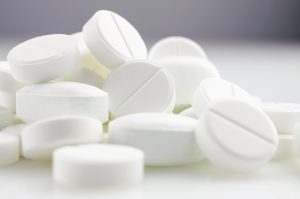What Is the Most Effective Aspirin Dose?

Cardiologists across the country are embracing a new, patient-centered research approach to help them answer a question they have pondered for decades: What is the most effective aspirin dose for patients with cardiovascular disease (CVD)?
The Aspirin Dosing: A Patient-Centric Trial Assessment Benefits and Long-Term Effectiveness (ADAPTABLE) study is a pragmatic clinical trial comparing 2 common aspirin doses—81 and 325 mg—among patients with CVD. Approximately 3,000 US patients were enrolled during its first year. The goal is to enroll thousands of patients over 3 years.
“The benefits of aspirin for the treatment of CVD are well established, but the best dose of aspirin is uncertain and is not specified by clinical practice guidelines,” says Duke cardiologist Matthew Roe, MD, MHS, a co–principal investigator of the ADAPTABLE trial.
“The optimal dose of aspirin is the perfect question to address with this approach,” he adds. “It’s a relatively simple question, and we don’t have to write or manage prescriptions since aspirin is an over-the-counter medication. The more patients we get to participate, the more data become available.”
The trial is being coordinated by the Duke Clinical Research Institute and involves physicians, clinical researchers, and patients at 8 partner networks associated with the Patient-Centered Outcomes Research Institute (PCORI), an organization whose mission is to fund patient-engaged research. ADAPTABLE is the first interventional trial launched by PCORI.
Recruitment, engagement, and informed consent efforts focus on patients with CVD recruited from practices within the partner research networks. The patients primarily are recruited via e-mail, letters, or phone calls and are directed to a patient web portal to register online to participate in ADAPTABLE. This mechanism for recruiting and randomizing patients into a clinical trial has never been used before on such a large scale.
Patient involvement generates excitement and allows researchers to involve more patients at a lower cost than existing clinical trial models. “This is the future of clinical research,” Roe says. “We share everything we do on the web with each other and the patients. It’s an exciting and promising model.”
Participant enthusiasm is evident in patient communications about the trial via internet forums and social media. Several patient partners have participated in live-streamed, Facebook broadcasts.
Cardiology research, Roe says, has reached a logjam. “Drug development in our field is lagging because of high costs,” he says. “We want to create more high-quality studies at much lower cost that are more meaningful for patients.”
Update: To learn more about the study, see the results.